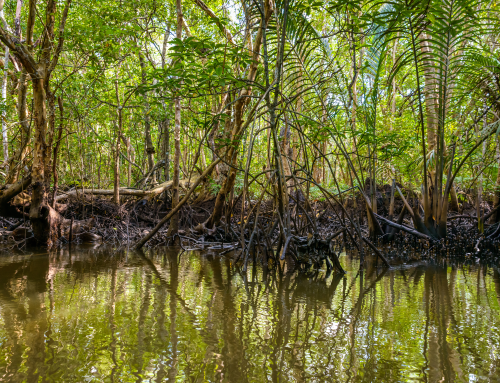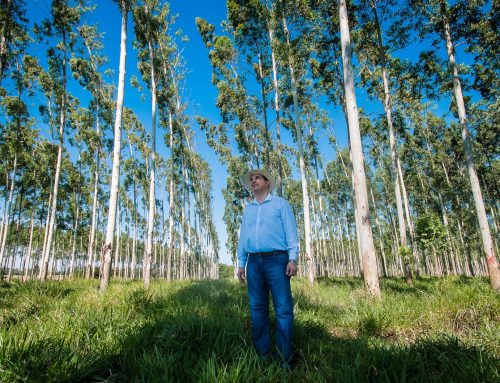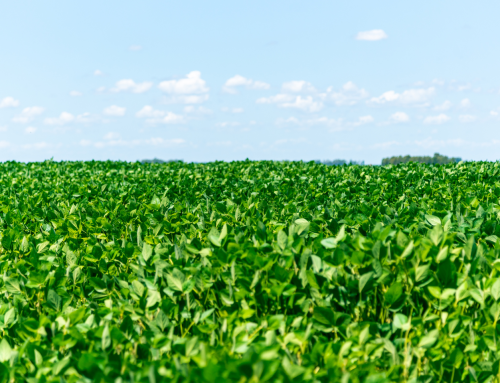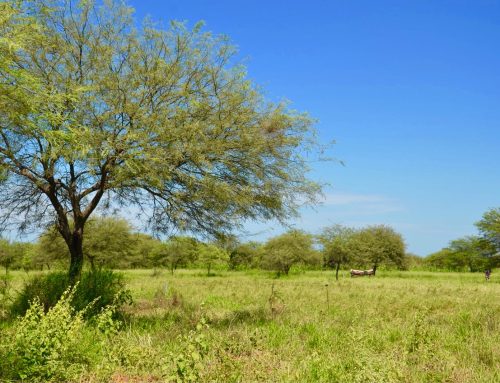Training, technical support and supplies for producers in Alto Paraguay.
In the Paraguayan Chaco coexist small, medium and large agricultural and livestock producers, of which a large part is dedicated to the production of cattle. According to data from SENACSA (2020), 52,4% of the cattle herd is located in the Chaco region, which would be approximately 7 million heads destined for production, mostly beef, with a percentage of milk or dual purpose.
To promote sustainable development through a balance between production and conservation, alliances were formed between different organizations working in the department of Alto Paraguay. By strengthening the economic development of small and medium-sized producers, better use and conservation of their natural resources is expected.
The Vice Ministry of Livestock (VMG), the Wildlife Conservation Society (WCS), the Government of Alto Paraguay and the Green Chaco project joined forces to train, provide technical assistance and support producers in the area with supplies and equipment. The technical teams of the organizations involved that arrived in the territory were able to learn about the reality of the producers to identify their specific needs and, based on them, build a joint work plan aimed at sustainable livestock production and adaptation to climate change.
Teach and assist
The key to success was the combination of training with constant technical assistance and the delivery of supplies, which allowed producers to be better prepared and adapted to extreme situations. The training plan covered topics on animal production, forage preparation (silage and baling), use of quality pastures, health management of small animals (sheep, pigs, goats) and large animals (cattle), production planning and management and water supply, which were complemented with the training implemented by WCS in terms of horticultural production for self-consumption and management of natural resources, all focused on more sustainable production practices.
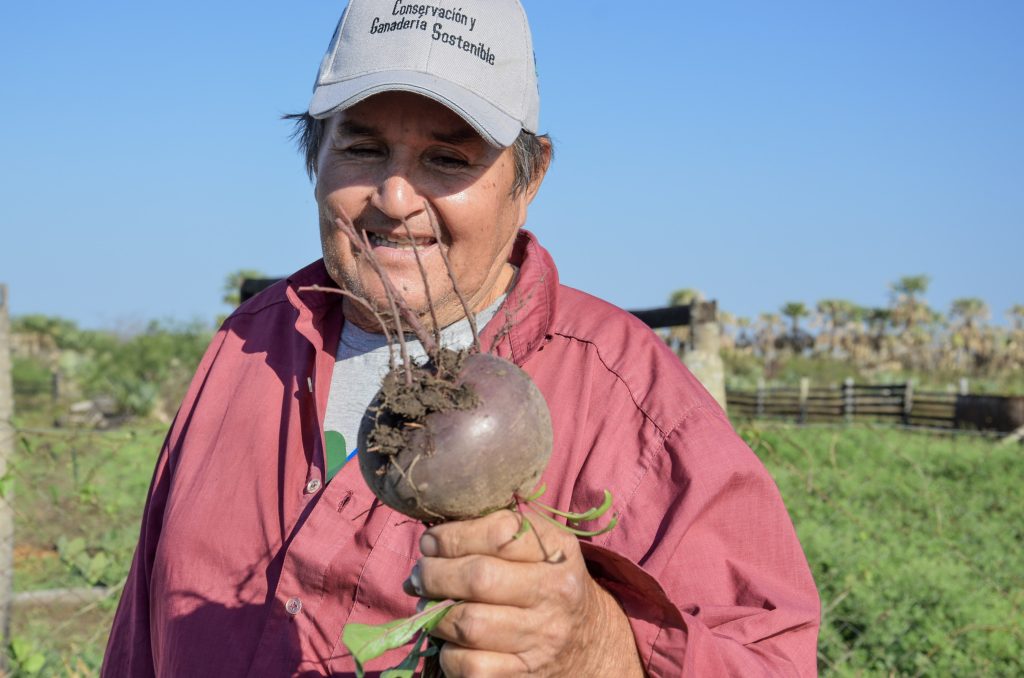
Mr. Gregorio, producer from Fuerte Olimpo ©UNDP Paraguay.
Within the farms of the producers that are part of the project, demonstrative plots of sustainable practices were installed, where there are water supply systems with solar panels to face problems of availability and distribution of water, for their own consumption and that of their animals. Electric fences were also installed to rotate grazing, achieving better pasture management and with practical training, silo bags were prepared, aiming in the short term to install a forage strategy appropriate to the conditions and to have vegetable plots for self-consumption.
In Puerto Casado, the producers supply the local demand and hope to continue growing.
In Fuerte Olimpo and Puerto Guaraní, the producers also worked on farm planning, writing down the key data of the cattle herd in a field notebook, vaccinating and sanitizing the animals in a timely manner, and managing better their water supplies.
The joint work achieved over 16 trainings, 186 trained people: 62 women and 124 men. With the provision of 5 tanks and solar-powered water systems, over 20 producers and their animals’ benefit, who may now have available water. Also, the provision of an electric fence to 5 producers served to divide 2,500 hectares of paddocks and allowed the animals not to be scattered. The forage strategy demonstrations allowed producers to carry out the practice of planning and implementing silo bags on a pilot basis in their establishments and whose reserves allowed some animals to have passed the critical winter of 2021 by having available food.
Overall, training’s recipients adopted 70% of good agricultural practices promoted, improving, in their own view, their economic and working conditions due to the increase of production, efficiency and costs reduction.
Training and technical assistance also allow producers to be more prepared for climatic risks in severe times, in order to improve their production and quality of life, while contributing to the fulfillment of the Sustainable Development Goals (SDGs) such as 12 Responsible Consumption and Production, 13 Climate Action, 15 Life on Land and 17 Partnerships for the Goals.
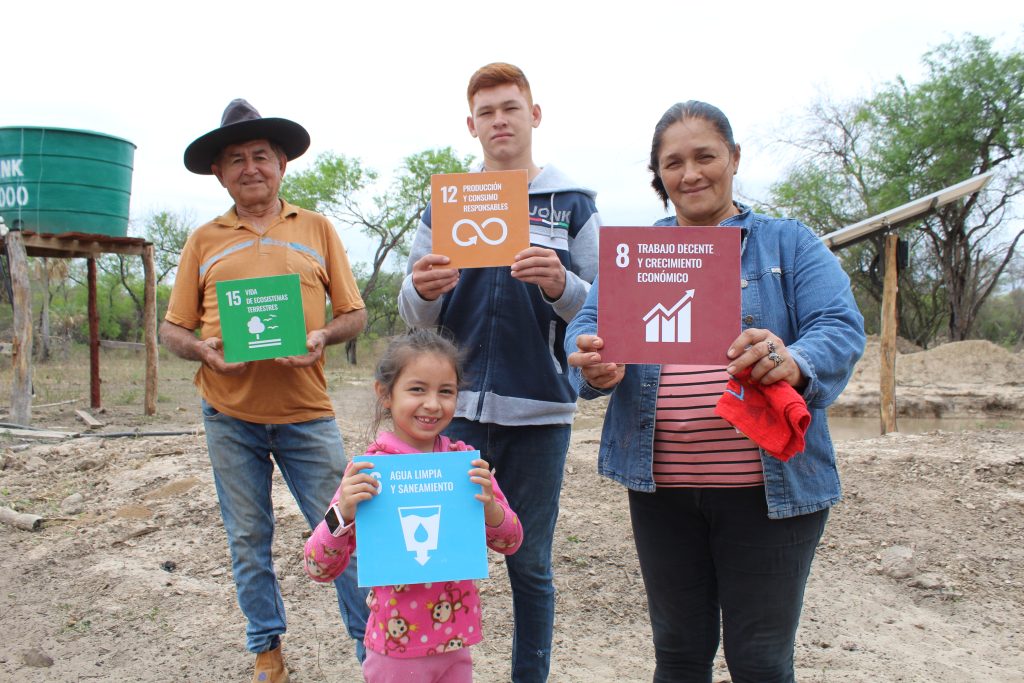
Producers from Alto Paraguay ©UNDP Paraguay.
These actions were carried out in a collaborative effort between the VMG, the WCS organization with financing from the Darwin Initiative and the Green Chaco Project, led by the Ministry of the Environment and Sustainable Development (MADES) and implemented by the United Nations Program for Development (UNDP) with financing from the Global Environment Facility (GEF). A project that came to an end in 2021, with almost 5,000 households benefited from trainings on sustainable production practices in the Paraguayan Chaco.


